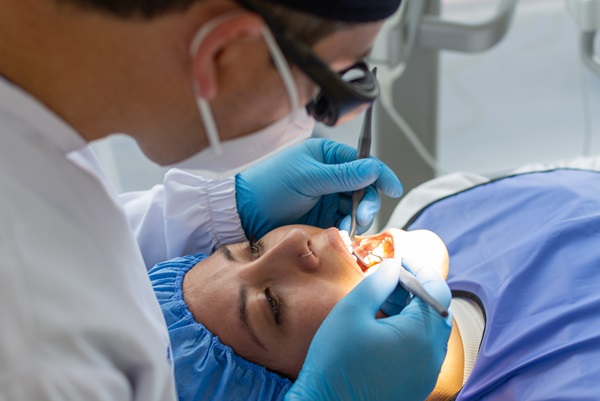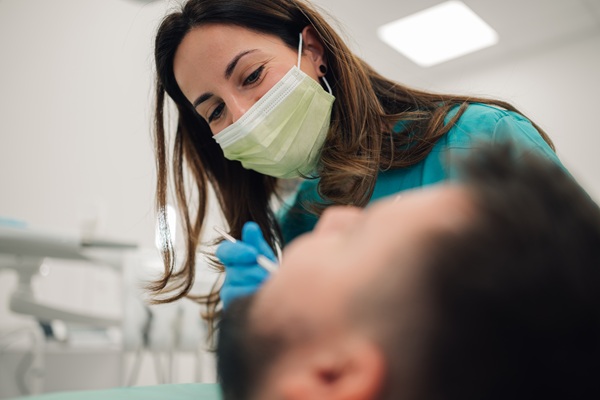Emergency Dentistry: Tooth Pain and Fever

A toothache occurs when one or more of your teeth have been damaged, and it might be a sign that emergency dentist is needed. Toothaches are sometimes accompanied by a fever, and that is often a sign of an infection in or around a tooth.
A dental infection is a serious health issue because the infection can spread to vital parts of the brain if left untreated. An infection in the brain can have life-threatening consequences. Emergency dentistry provides urgent care for such serious dental issues before things get out of hand. Common causes of a toothache that is accompanied by a fever include:
- Tooth decay
- Abscess
- Damaged restoration
- Fractured or broken tooth
- Worn-down teeth
- Infected gum tissues
Pain and fever are not the only symptoms associated with toothaches. Other symptoms that might occur as a result of a damaged tooth include inflammation around the affected tooth, headaches, a weird taste in the mouth and bad breath.
How emergency dentistry treats toothaches
Here are signs that mean it is time to get emergency dental care for your toothache, as well as how a dentist can resolve the issue.
1. Severe toothache that does not go away
A toothache that causes so much pain that a person cannot get their mind off it or sleep at night might be a sign of an exposed pulp chamber. It might also be a sign that a tooth has been infected, particularly if the pain is accompanied by a fever.
Dentists recommend coming in for emergency care when dealing with such toothaches. The problem can often be fixed by performing a root canal on the tooth and possibly covering it up with a crown. If the infection is close to spreading to other parts of the body, the dentist might recommend extracting it instead.
2. Pus pockets on the gums
Pus pockets forming on gum tissues might be a sign of an abscess. It often comes with a fever, and it is caused by bacteria in the mouth getting into the gums. The immune system tries to kill off the infection by sending antibodies to the area. The result is inflammation in the area and pus pockets forming on or around the tip of a tooth’s root.
A dentist might go about fixing an abscessed tooth by doing any of the following.
Draining the abscess: Dentists can treat abscesses by draining the pus pocket and applying medication to the area. The pus pocket formed by an abscess typically drains on its own when left untreated.
Antibiotics: Dentists can prescribe antibiotics to help fight off the infection. This is typically used in combination with other treatments.
Root canal: Root canal treatments are used when the soft tissues in the pulp chamber are infected. The dentist cleans out the area, applies medication and seals it.
Get emergency dental care
Dealing with a toothache and a fever? Our dentist can perform the emergency treatments you need. Call or visit our Saginaw clinic as soon as you can.
Request an appointment here: https://yourbrilliantsmile.com or call Kevin S. Bone D.D.S. at (989) 272-4253 for an appointment in our Saginaw office.
Check out what others are saying about our dental services on Yelp: Emergency Dentist in Saginaw, MI.
Recent Posts
Oral injuries that lead to severe bleeding in the mouth count as dental emergencies. Blood clots have a more challenging time forming in the mouth, and deep cuts in the mouth can lead to significant blood loss without the care of an emergency dentist. Waiting up to a few weeks for a regular appointment is…
Asking a general dentist for guidance on what to do when experiencing tooth pain is a great idea. General dentists are dental professionals who often provide their patients with helpful tips when experiencing dental problems. Since there are many reasons for tooth pain, understanding the reasons is also necessary.Visiting a general dentist allows patients to…
Dentures are one of the more common methods of tooth replacement and they often fall under the category of general dentistry services. Understanding what dentures are and who they are for can help you decide whether they or another type of general dentistry service is right for you.General dentistry services vary for each general dentist.…
In general dentistry, fluoride treatments are common. Fluoride is a mineral found in bones and teeth, as well as water, plants, soil, rocks, and air. When used by dentists, fluoride strengthens tooth enamel. Therefore, dentists generally use fluoride as a preventative treatment against cavities. Additionally, fluoride can be found in most public water supplies. In…


